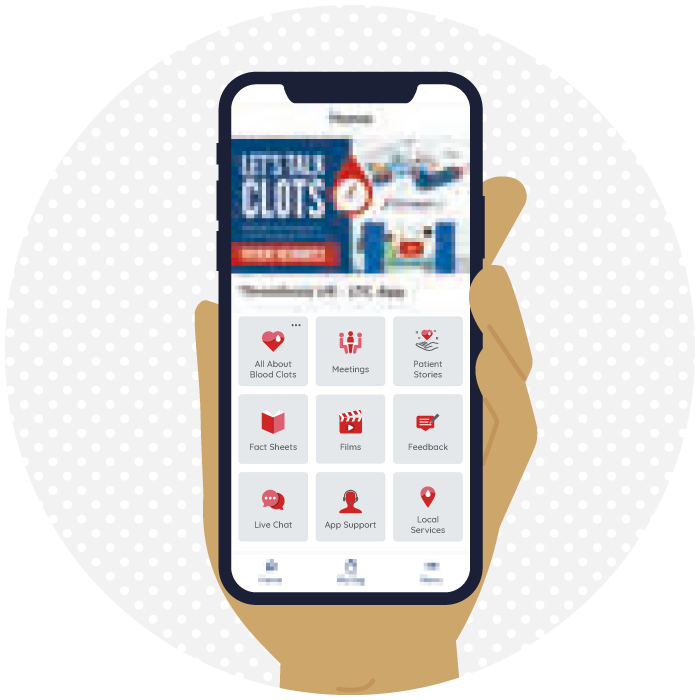PATIENT INFORMATION HOME
Venous thromboembolism (VTE), often referred to as deep vein thrombosis (DVT), pulmonary embolism (PE) or blood clots, can affect anyone – of any age, gender, ethnicity, or well-being.
Thrombosis UK free, medically approved information booklets, resources and support networks offers anyone affected by blood clots access to reliable information to help them through their blood clot journey and beyond.

Know Your Clot Risk
Being aware of risk factors, and especially of your own risk factors is really important in helping you to avoid and protect yourself from thrombosis.
A venous thromboembolism (VTE), often referred to as a deep vein thrombosis (DVT), pulmonary embolism (PE), thrombosis or blood clot, is a clot that forms in a vein.

Patient information resources
Explore Thrombosis further by delving into patient narratives, videos, informative sheets, and our dedicated app.
Coping with worry after a clot
Navigating the challenging waters of health-related anxiety, especially after being diagnosed with a blood clot, can feel overwhelming. Realising that each question and concern shared by those who have experienced a venous thromboembolism (VTE) is laced with apprehension and a quest for understanding, we’ve crafted this dedicated space.
Patient support meetings
Connect with others, share experiences, and receive the encouragement you need in a friendly and supportive environment. Be part of a compassionate community that understands and supports you!
Let's Talk About Clots App
The app shares information about blood clots. Including reducing risk, signs and symptoms, diagnosis and approved treatments as well as offers guidance and support on recovery after a blood clot.
Shared Accounts
A diagnosis of a blood clot can be a shock and extremely frightening. Feeling worried, alone and wondering why, or what the future might now hold, is very normal. Knowing that you are not alone, can make such a difference. The experiences below have been shared by individuals who have been diagnosed with a blood clot or lost a loved one due to a pulmonary embolism. They hope that by sharing their own experiences will help others and increase awareness of the impact of thrombosis.

Educational Events
Connect with others, share experiences, and receive the encouragement you need in a friendly and supportive environment. Be part of a compassionate community that understands and supports you!

Thrombosis UK VTE Awards
Celebrating pioneers working to deliver outstanding practice in venous thromboembolism (VTE).
The VTE Awards recognise exemplary practice and pioneers working to:
- prevent VTE,
- embed effective management of VTE prevention,
- provide best patient care and management in identification, diagnosis, and management of VTE.











